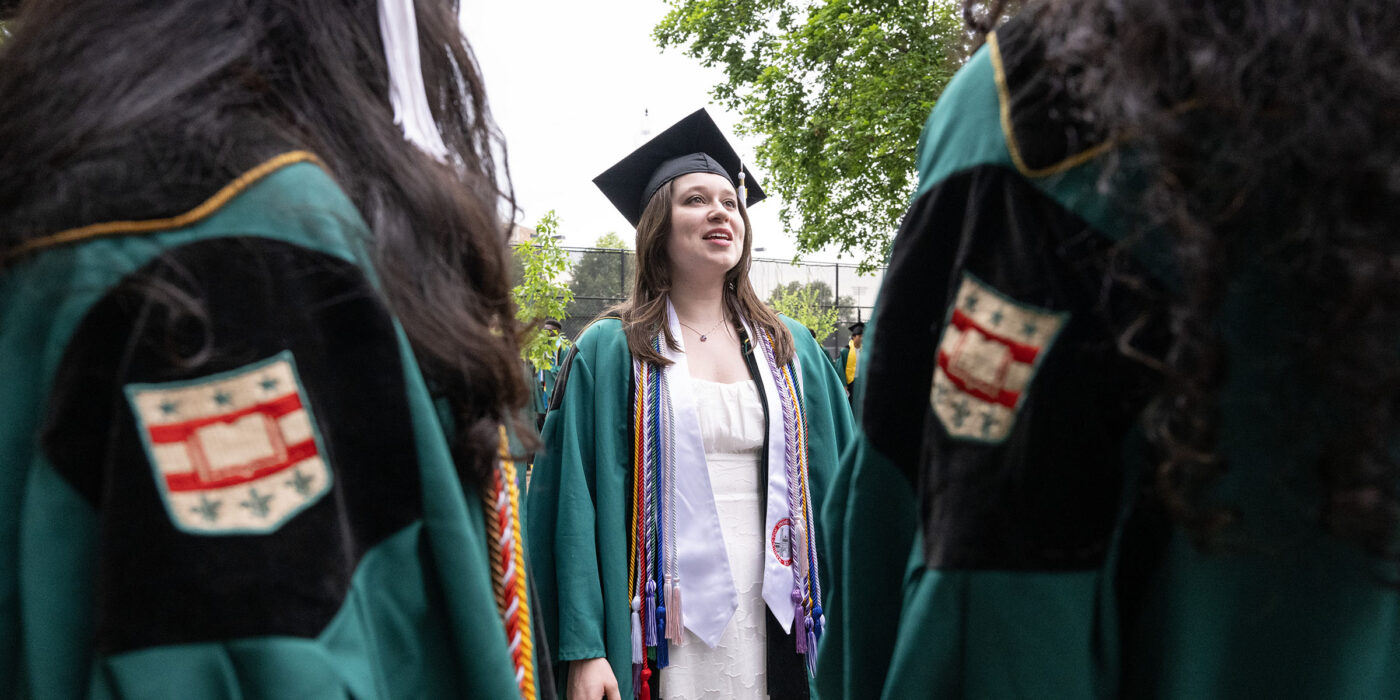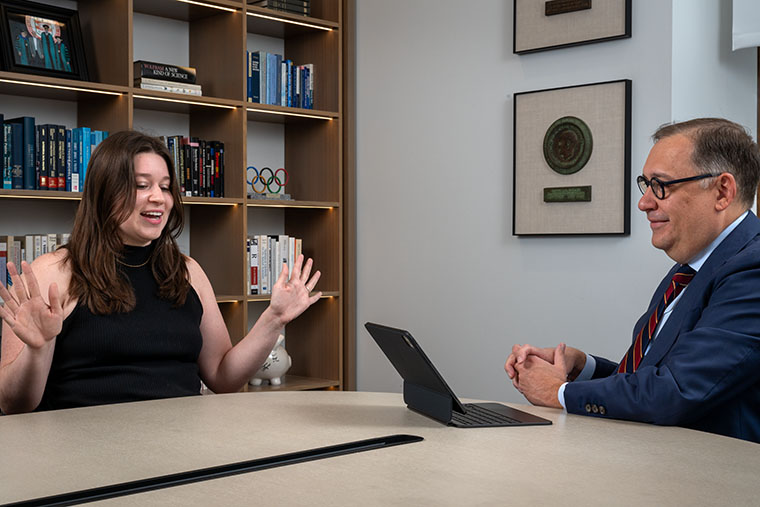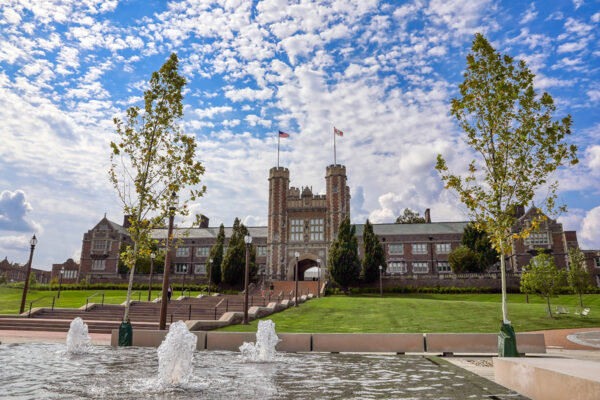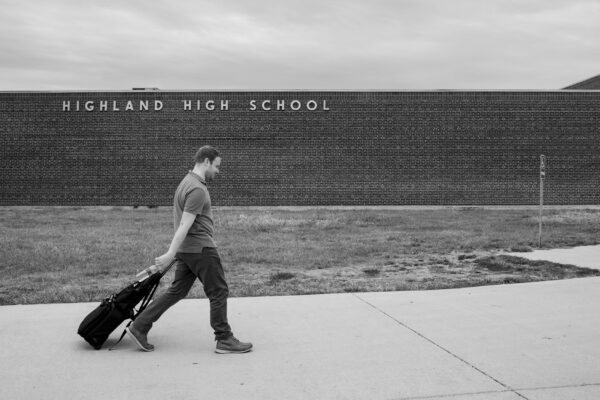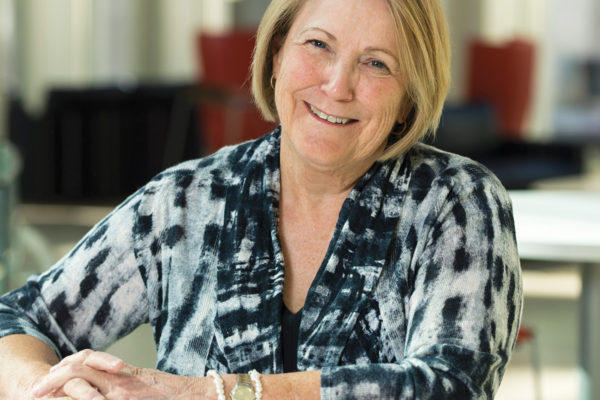Sitting in Brookings Quadrangle on Oct. 3, 2019, at Washington University in St. Louis, Ronné Turner, vice provost for admissions & financial aid, knew what was coming. And yet.
“To actually hear the words out loud — it made it real,” Turner recalls. “I knew this was going to make a big difference to our students, to our university and to our region.”
Turner is referring to the WashU Pledge, the bold scholarship initiative Chancellor Andrew D. Martin unveiled during his inaugural address that day. The pledge, Martin announced, would provide all Pell-eligible admitted students from Missouri and southern Illinois a free WashU education — tuition, housing, food, fees, books, even money for a laptop.
“We have a unique responsibility to provide opportunity for students in our extended region — to the four corners of Missouri and our neighbors in the southern portion of Illinois. By doing so, we’re attracting our very best and brightest and keeping them right here, close to home,” Martin said, to resounding applause.
Four years later, Turner cheered as Washington University graduated its first cohort of WashU Pledge students — a total of 87 students representing 73 Missouri and Illinois high schools. In total, WashU has provided $66 million in support to 352 pledge students. Equally important, the university has established programs and expanded resources to make sure all limited income and first-generation students get the true WashU experience.
“At WashU, we understand that talent comes in a variety of packages,” Turner says. “Not every student went to a high school with AP physics; not every student could participate in extracurriculars. Our job is to recognize the assets they do have and to find ways to nurture and expand that talent.”
Pledge drive
Take pledge graduate Julia Blanchard of Liberty, Missouri, who majored in global studies in Arts & Sciences. Her success as a peer mentor for the Taylor Family Center for Student Success (TFC), which connects first-generation and limited-income students to academic, professional development and social opportunities, inspired her to enroll in the Brown School’s 3-2 program, through which she earned her undergraduate degree and is now set to earn her master’s. Blanchard also is opening a new LGBTQ community center called the Collaboration Center.
“There is a domino effect that goes from the pledge to the TFC to the Brown School to the community center,” Blanchard says.
The pledge opened doors for other 2024 graduates as well. As a project lead for Engineers Without Borders, Caleb Martonfi of Eldon, Missouri, had the opportunity to partner with a Ugandan health clinic to bring a new well to the town of Jinja.
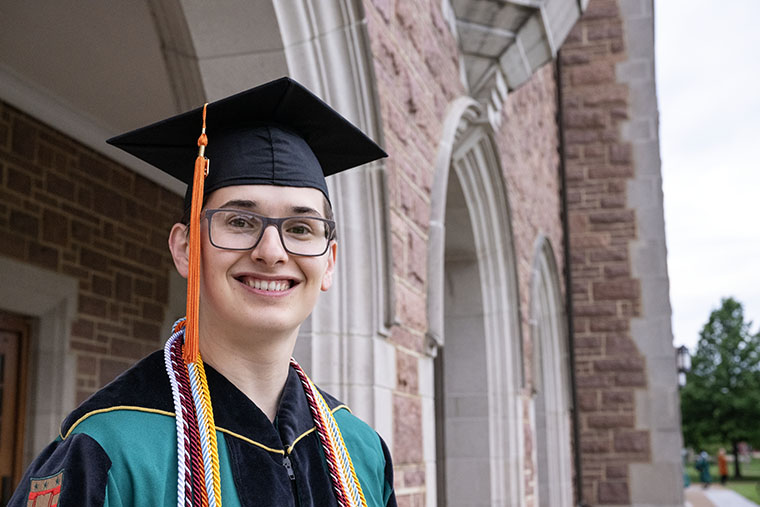
“Before drilling, we spent a lot of time talking to hydrologists and looking at land agreements and geological surveys to find the right location,” says Martonfi, who majored in chemical engineering at the McKelvey School of Engineering and now works as an engineer at Mars Petcare, the candy and pet food giant. “We were expecting a yield of 1,000 liters per hour and we got 20,000 liters, which was really exciting. As a builder, it was really exciting to work with the community to have a real-world impact.”
Pledge graduate Jada Dorsey of Belleville, Illinois, made a difference closer to home.
As a peer tutor at The Writing Center, Dorsey helped classmates marshal evidence into arguments and compose tight, bright essays. She is currently completing a novel — her fourth — and works as a marketing intern at the St. Louis headquarters of the global marketing agency HLK.
“A lot of writers would come in and say, ‘I’m not a good writer. Please fix this,’” says Dorsey, who majored in creative writing and education in Arts & Sciences. “I would respond, ‘There is no such thing as a bad writer. Maybe you are not as practiced as you would like to be, but everyone has the capacity to be a good writer.’ And that would lead to a really good conversation. It was fulfilling for me to take away that stress and show them that they could do this.”
Graduates say the WashU Pledge provided more than scholarship dollars and a top-notch education. The Taylor Center, for instance, launched a robust mentorship initiative that pairs students with successful professionals. Blanchard was matched with Maxine Clark — yes, the Maxine Clark who founded Build-A-Bear Workshop and the Delmar DivINe — who introduced Blanchard to the “who’s who” of the local nonprofit community.
“The most important lessons for me were about networking. I learned not to be afraid to reach out to people you don’t know. … Growing up in a small, rural community, I didn’t have those same sort of connections.”
Caleb Martonfi
One of those leaders was Rick Ruderer, executive director of Tower Grove Pride, and now a co-founder with Blanchard’s in starting up a new community initiative called Collaboration Center STL, which is an LGBTQ+ community center.
“A week after Maxine introduced us, he invited me to see the location,” Blanchard says. “And I was like, ‘OK, wow that was fast!” But I soon realized we were on the same mission. Maxine helped me think through my goal and put me in the right place at the right time.”
Martonfi says he developed his professional skills as a Chancellor Career Fellow, a cohort-based program for first-generation and limited income students. Fellows receive personalized career planning and coaching, and receive up to a $5,000 stipend for a summer internship. Martonfi landed a research position in the lab of Richard Axelbaum, the Stifel & Quinette Jens Professor of Environmental Engineering Science, where he conducted flame experiments.
“We learned a lot of things that you might expect as Career Fellows like how to write a cover letter and résumé,” Martonfi says. “But the most important lessons for me were about networking. I learned not to be afraid to reach out to people you don’t know. Everyone at WashU seemed like they knew someone. Growing up in a small, rural community, I didn’t have those same sort of connections.”
